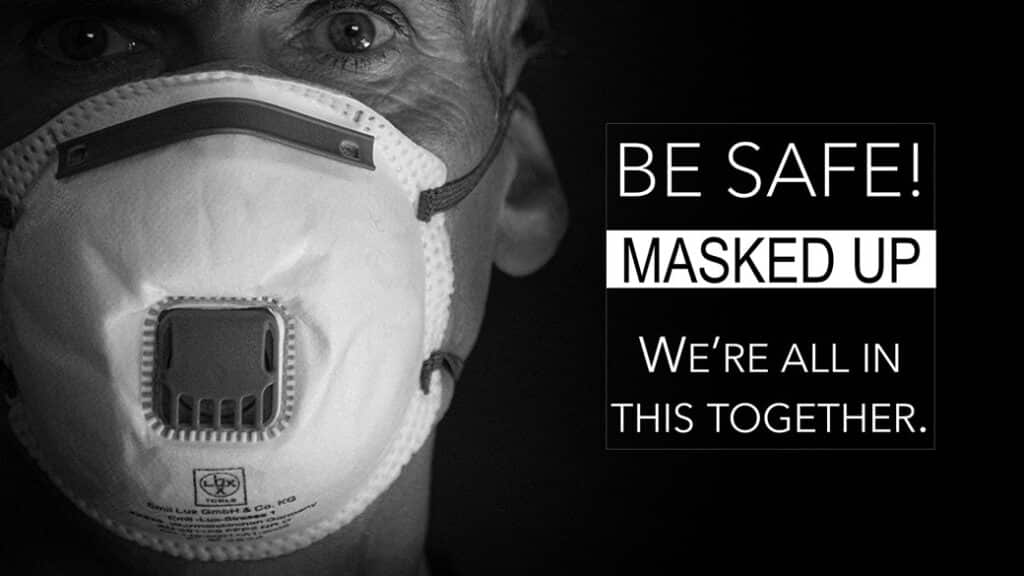There’s no arguing that we live in a new world – one where a simple trip to the grocery store could result in a life-threatening illness. Or so it seems if you stay on top of the latest headlines. It can be difficult to separate fact from fiction with so many people disagreeing, but a few things are indisputable: first, there is a new virus out there that we don’t fully understand; second, staying home is the best way to avoid exposure; and third, most people cannot stay at home day after day, so understanding how to protect yourself is key. Here are a few tips to help you stay safe and give you peace of mind while we wait for a vaccine (the ultimate goal).
1. Wash your hands
If you are going to do just one thing to protect yourself from the novel coronavirus, wash your hands. Wash them often and well. That means using soap and water and washing for at least 20 seconds, especially after being in public, being around people who have been in public, blowing your nose, coughing, or sneezing. Never touch your face (eyes, nose, or mouth) with unwashed hands. And if you can’t wash your hands, use hand sanitizer – but still wash your hands as soon as you get the chance.
2. Wear a mask
There is a lot of controversy at the moment about wearing masks in public. A lot of people seem to feel that they should be able to choose for themselves whether or not to protect themselves from COVID-19. The problem with this thinking is that your mask isn’t there to protect you from others – it’s there to protect others from you. It’s possible to be an asymptomatic carrier of COVID-19 and infect others without ever knowing that you have it. So remember, while your mask offers you some protection, its primary purpose is to protect other people.
3. Keep your distance
“Social distancing” is quite the buzzword this year. Simply put, it means keeping plenty of space between yourself and people who do not live with you in your home. In addition to washing your hands and wearing a mask, social distancing is one of the most important things you can do to slow the spread of this disease. Whether indoors or out, stay at least six feet away from other people, or about two arms’ length. Avoid crowded places and do not gather in groups. Even as restaurants, venues, and other businesses reopen, you’re safest staying away.
Social distancing is especially important for people who are at risk for severe symptoms or death from COVID-19, as well as the people with whom they have contact.
4. Stay informed
You shouldn’t obsess over the news – doing so will only make you a nervous wreck. However, it’s a good idea to stay on top of what’s happening in your community and follow the guidelines of your local leaders. Use your common sense, though – if restaurants are open in your area, for example, yet the numbers of new cases are climbing, it’s probably best to avoid going out whenever possible. Many decisions around reopening are being made based on politics and the economic consequences of staying at home, but it’s up to you to make decisions regarding protecting your health and that of your family based on what the scientists and doctors say (the real experts).
5. Know what to do if you get sick
The main COVID-19 symptoms include fever, shortness of breath, and a dry cough, plus fatigue, body aches, headaches, loss of taste or smell, congestion, sore throat, and nausea, vomiting, or diarrhea. If you contract COVID-19, you may experience none of these symptoms, some of them, or all of them. If you do develop symptoms, stay at home and give your doctor a call. Isolate yourself from other people in your home and avoid sharing items like dishes, towels, and bedding. Finally, if you have symptoms that require immediate medical attention (trouble breathing, confusion, inability to stay awake, bluish lips, or persistent pressure or pain in the chest), then call your local emergency department or 911 for prompt medical advice.
Keep in mind that the percentage of people testing positive for COVID-19 is relatively very small – and the percentage of people who develop severe or life-threatening symptoms is even smaller. So, don’t worry, but do follow guidelines to stop the spread. If everyone does their part, we can create a safer world for everyone in it.
Image by Queven from Pixabay


